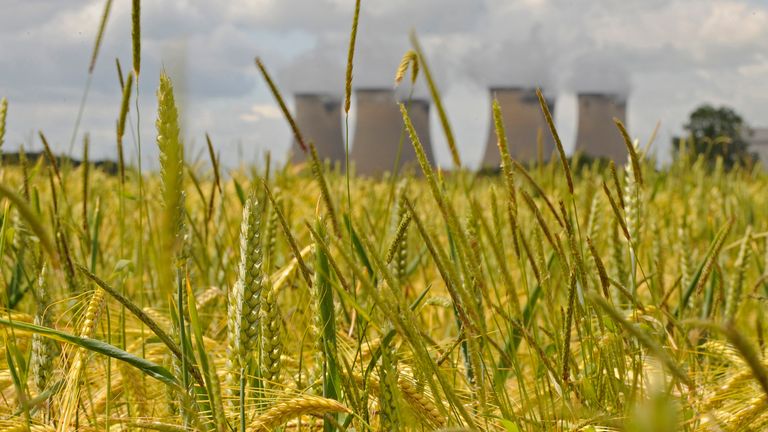British Gas owner Centrica hikes capacity at UK’s largest gas storage facility to bolster winter power security
Energy giant Centrica has increased capacity at the UK’s largest gas storage facility to boost resilience in the coming winter.
The Rough site, located 18 miles off the East Yorkshire coast in the North Sea, had been mothballed in 2017 but reopened last year, when it was able to store around 30 billion cubic feet (bcf) of gas.
The parent company of British Gas says it has now increased this to 54 billion bcf.
Cost of living latest – Energy bills to fall by hundreds
The facility now provides half of the UK’s total gas storage.
It will hold enough gas to heat 2.4 million homes over winter, the firm said.
Centrica group chief executive Chris O’Shea said: “The resilience of the UK’s energy system needs to be substantially improved.
“We are delighted to play our part by further expanding the UK’s gas storage capacity.
“Rough is not a silver bullet for energy security, but it plays a critical role in increasing capacity and supply confidence over the winter months.
“Rough can help our energy system by storing natural gas when there is a surplus and producing this gas when the country needs it during cold snaps and peak demand.”
Read more:
British Gas profits to be ‘significantly higher’ in first half of year
What is the demand flexibility service?
Record amount withdrawn from savings as cost of living crisis bites households
The move comes as energy prices for households are set to drop from Saturday due to a decrease in Ofgem’s energy price cap following a fall in wholesale gas prices.
Earlier this week, the National Grid confirmed it would have no coal-fired power as back-up this winter to help keep the lights on.
There were five contingency units to call on last year as the energy market reeled from the impact of Russia’s war in Ukraine.
They were warmed up several times and used during March when a cold snap hit wind generation.
But they will not be available in the future as a result of the government drive to tackle climate change.
The National Grid Electricity Systems Operator (ESO) has already said it was “prudent to maintain” the demand flexibility service (DFS), which was introduced in 2022.
The initiative, which was activated for the first time in January after a series of tests and false alarms, sees volunteer households paid to turn off their main appliances at times of peak demand.
For all the latest business News Click Here



